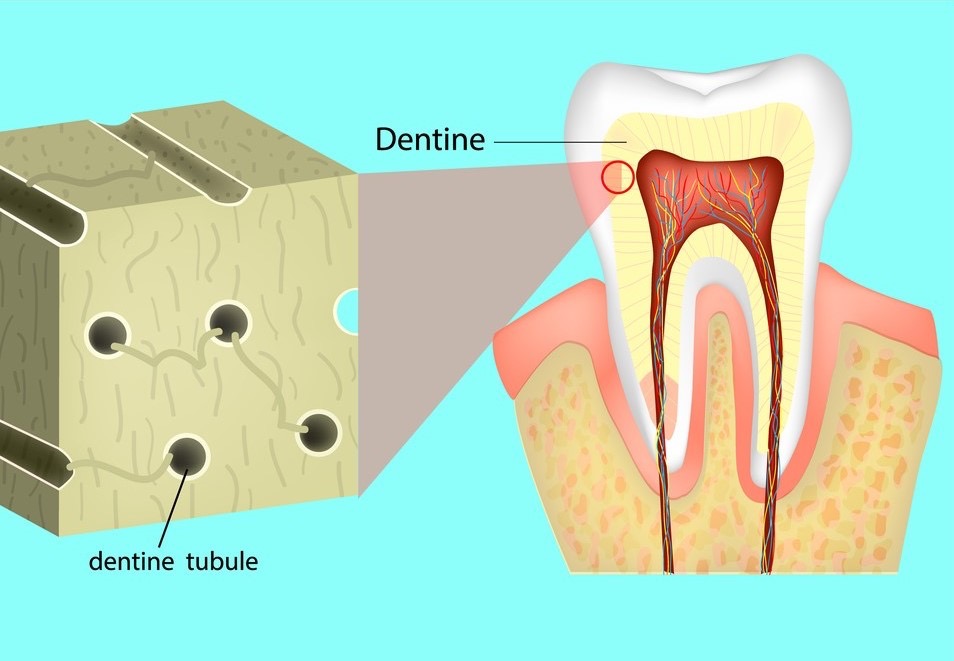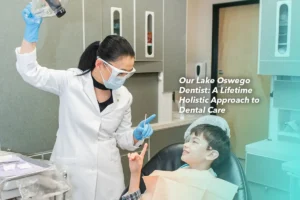Are you tired of cringing when you sip hot coffee or eat something cold? If so, you may be among many people with tooth sensitivity. This common dental issue affects millions of individuals worldwide, causing pain and making it difficult to enjoy certain foods and drinks.
Understanding the causes of tooth sensitivity is the first step in finding relief. As a holistic dental office, we delve deeper into the interconnected factors affecting dental health. Dental Arts and Wellness uses both traditional treatment and holistic approaches to alleviate discomfort and restore balance to your oral health.
In this article, we will explore the causes behind tooth sensitivity, discuss the most common symptoms to look out for, and provide treatment options. Whether you’re dealing with mild sensitivity or severe pain, understanding this condition is vital to finding the right solution.
So, let’s embark on a journey through tooth sensitivity from a holistic perspective and uncover how to alleviate its effects naturally.
Symptoms of Tooth Sensitivity
- Sensitivity to hot, cold, sweet, or acidic foods and beverages.
- Discomfort or pain during brushing or flossing.
- Discomfort when biting hard foods.
If you experience any of these symptoms, contact Dental Arts and Wellness. We can assess your oral health from a comprehensive perspective and develop personalized treatment strategies, which is essential.
What Causes Tooth Sensitivity?

Here is a simple explanation from the American Dental Association of what happens when teeth become sensitive.
In healthy teeth, a layer of enamel protects the crowns of your teeth—the part above the gum line. Under the gum line, a layer called cementum protects the tooth root. Underneath both the enamel and the cementum is the dentin.
Dentin is less dense than enamel and cementum and contains microscopic tubules (small hollow tubes or canals). When dentin loses its protective covering of enamel or cementum, these tubules allow heat, cold, acidic, or sticky foods to reach the nerves and cells inside the tooth, causing tooth sensitivity. Here are some dental conditions that can cause the dentin to lose its protective covering:
Worn Tooth Enamel
Worn tooth enamel can cause tooth sensitivity by exposing the underlying dentin layer of the tooth. Enamel is the hard outer covering that protects the sensitive inner layers of the tooth. The dentin underneath becomes exposed when the enamel wears down due to aggressive brushing, acidic foods, drinks, or teeth grinding.
Worn Fillings
Worn fillings can contribute to tooth sensitivity by exposing the underlying dentin and compromising the integrity of the tooth structure. When fillings become worn or damaged, they may no longer effectively seal off the tooth from external stimuli like hot, cold, sweet, or acidic foods and beverages. As a result, the dentin underneath the filling becomes vulnerable to these stimuli, leading to discomfort or pain. Additionally, worn fillings can allow bacteria to infiltrate the tooth, potentially causing decay and further worsening sensitivity.
Gum Recession
Gum recession or gum disease can intensify tooth sensitivity by exposing the softer, more porous root surfaces of the teeth and diminishing the protective layer of gum tissue. When gums recede, they expose the sensitive nerves within the tooth, making them more susceptible to temperature changes and external stimuli. Additionally, the roots become more easily irritated during brushing, flossing, and chewing, worsening sensitivity and discomfort. Furthermore, the increased risk of tooth decay associated with gum recession can compromise the overall integrity of the teeth, contributing to heightened sensitivity.
Tooth decay
As a tooth decays, it eats away at the enamel, the outer layer of the tooth, exposing the sensitive dentin underneath. As explained above, this dentin contains microscopic tubules that lead to the tooth’s nerve center. When exposed to hot, cold, sweet, or acidic substances, these tubules transmit sensations of discomfort or pain to the nerves, resulting in tooth sensitivity. Addressing tooth decay early through proper dental care and regular check-ups is crucial to prevent further damage and alleviate sensitivity.
Cracked or Chipped Teeth
Cracks or chips in teeth disrupt the tooth’s structure, weakening its ability to withstand hot, cold, and pressure.
Exposed Tooth Root
When the root of a tooth becomes exposed, whether due to gum recession or enamel erosion, it can lead to tooth sensitivity. The tooth root contains tiny tubules that connect to nerve endings within the tooth, making it more susceptible to external stimuli. When exposed, these tubules allow hot, cold, sweet, or acidic substances to reach the nerves, resulting in discomfort or pain. Additionally, the root surface lacks the protective enamel covering found on the tooth crown, leaving it vulnerable to sensitivity triggers. It’s essential to promptly address gum recession and enamel erosion to protect the tooth root and alleviate sensitivity.
Dental Arts & Wellness Services Addresses Tooth Sensitivity
The type of treatment will depend on what is causing your tooth sensitivity. Dental Arts & Wellness has all traditional dental services to address tooth sensitivity and a holistic services.
- Routine Dental Care: Professional dental cleaning can significantly help relieve sensitive teeth by removing plaque, tartar, and other buildup contributing to tooth sensitivity. During a dental cleaning, a hygienist uses specialized tools to thoroughly clean the surfaces of your teeth, including those hard-to-reach areas. By eliminating plaque and tartar, which can irritate sensitive teeth and gums, professional cleanings reduce inflammation and decrease sensitivity.
- Dental Fillings: A dental filling is needed when we find a cavity during your appointment. The decay is removed from the tooth, leaving behind a small hole. We fill the hole with composite resin, which is tooth-colored and incredibly long-lasting. Fillings not only improve the look of your smile, but they can help in keeping teeth strong and resilient.
- Dental Crowns: We use dental crowns to help protect a weak tooth from breaking down further. Crowns also restore damaged or broken teeth. The crown is similar to a cap and fits snugly over the tooth. Crowns can change a tooth’s shape, size, and color and look natural in the mouth. Crowns are durable and can give patients a beautiful and natural-looking smile.
Holistic Strategies for Managing Tooth Sensitivity
Holistic dentistry emphasizes a multifaceted approach to managing tooth sensitivity, integrating traditional dentistry with natural remedies and lifestyle modifications.
- Nutritional therapy: Adopting a nutrient-dense diet rich in vitamins, minerals, and antioxidants supports optimal dental health and strengthens enamel resilience.
- Holistic remedies: Herbal mouth rinses, remineralizing tooth powder, and supplements containing antimicrobial and anti-inflammatory herbs can promote oral microbiome balance and tissue healing.
- Biocompatible dental materials: Our holistic dental practice prioritizes using biocompatible materials free from harmful chemicals and allergens, ensuring compatibility with the body’s natural healing processes.
By embracing these holistic approaches, you can address the root causes of tooth sensitivity and cultivate vibrant oral health and well-being.
Conclusion: Embracing Holistic Dental Care for Tooth Sensitivity Relief
A holistic approach to tooth sensitivity addresses its underlying causes. We focus treatment on restoring the tooth’s integrity and balancing your oral ecosystem. By understanding all aspects of dental health, we can embark on a journey toward lasting relief and vitality.
From nurturing the oral microbiome to harmonizing the body’s energetic pathways, holistic dentistry offers a comprehensive framework for managing tooth sensitivity naturally. By integrating nutritional therapy, herbal remedies, and biocompatible materials, you can reclaim your oral health and embrace a life of holistic wellness.
Remember, your smile reflects your inner vitality and well-being. By partnering with a holistic dentist, you can experience true healing and transformation from the inside out. Contact us now and embark on your holistic dental journey today and rediscover the joy of smiling confidently and comfortably!
Sincerely,
Dr. Manami Yamaguchi
Dental Arts and Wellness




